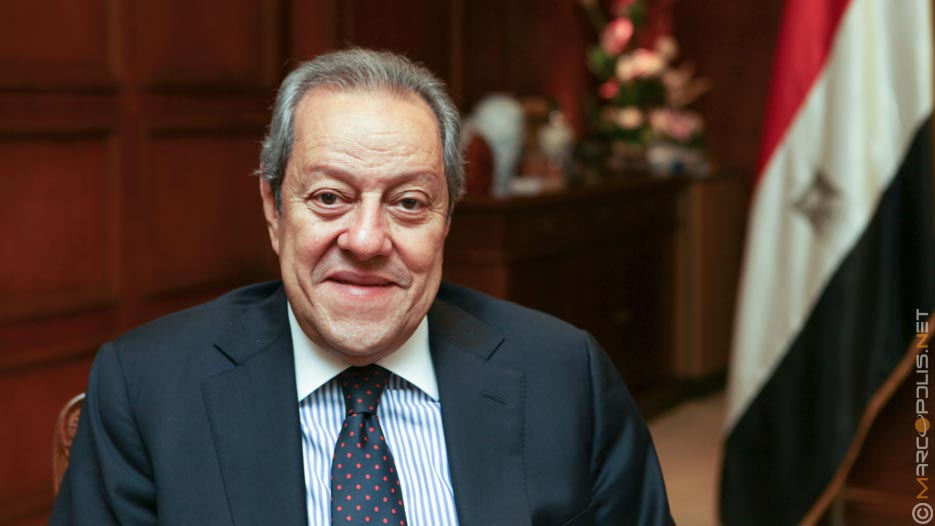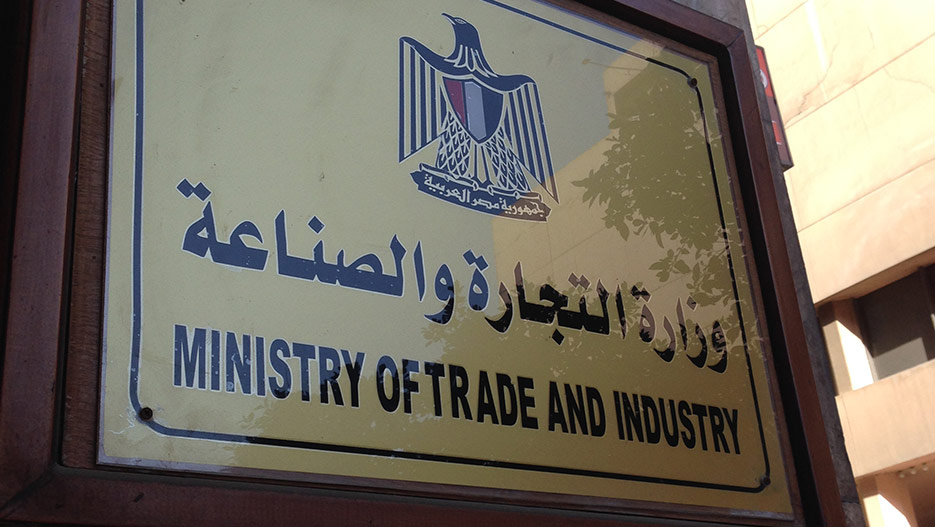Industrial Mega Projects in Egypt: Overview by the Minister of Industry and Trade, Egypt
“In addition to the mega projects we have tangible, well-studied sectorial industrial projects in several fields and sectors, including petrochemicals, the engineering sector, household goods, electrical equipment, white goods etc., that are for the domestic Egyptian market.”
Interview with Mounir Fakhry AbdelNour, Minister of Industry and Trade, Egypt

The government is hoping to increase FDI to USD 15 billion by 2018. That is a big growth. I want to know why that figure is mentioned and also how you aim to achieve that target. It’s a general question, to see what your plans are.
Yes foreign direct investment is increasing in Egypt. They will be increasing much more when we can recoup investors’ confidence. As a matter of fact, back in 2007, 2008, Egypt attracted some USD 12 billion in FDI. Our target is to reach USD 15 billion annually and I think it is doable. It’s doable because we intend to create the proper environment, the proper climate to attract those investments. I think there are tremendous opportunities in Egypt. If FDIs are lagging behind our expectations, it’s because we have a very heavy bureaucracy, we have some conflicting laws, and we lack the proper infrastructure. What we are doing right now is, we are reviewing all laws and procedures. We have one target, to facilitate doing business in Egypt. It is to facilitate investment, trading, import, and export in Egypt. In addition, as you might know, we have a huge program for investment in infrastructure. We are talking of roads, bridges, tunnels, industrial zones, and telecommunications. I think the stage will be set within a couple of months to witness a boom in FDIs. I strongly believe that the target is achievable.
You have touched upon some of the points I would like to go into further detail on. The government introduced major reforms to promote economic growth and investments. For instance there is the raising of the electricity price over 5 years to reduce subsidies. You are reducing subsidies to redirect them to social programs. You are also reducing fuel subsidies. I would like to know what the future reforms are.
Our target is to reach USD 15 billion annually and I think it is doable.
Very briefly, Egypt faced 3 deficits. A deficit in our budget, a deficit in our foreign balance, and a growth deficit. This government is attending to those 3 problems. We are trying to re-structure our budget, reduce our expenditures, slashing subsidies on electricity, oil, gas and oil products. On the other hand, we are trying to increase our tax income by introducing new taxation, for example, the VAT (value added tax) to replace the current sales tax, introducing real estate tax, trying to enlarge and increase the number of tax contributors by attracting those who are working outside of the official economy. But we also have a very clear social program that will result in an increase in social expenditures, especially in education, health, social coverage and R & D. As you know, we had a budget deficit of 13.1 or 13.2%. This year we hope to achieve a major reduction in the deficit. We hope to bring down the deficit to 10%. We hope to have a primary surplus by 2016 or 2017.
As for the growth deficit, the growth rate of our economy was hovering about 2% for the last 4 or 5 years while unfortunately our population growth rate is around 2.5 or 2.6%. This means a reduction in per capita income of Egyptians and it contributes to the unemployment rate. Today the unemployment rate is around 13%.
So we have a huge investment program. This program encompasses investments in real estate, roads, bridges, tunnels and communications. We also have a huge investment program in industry and services. We have mega projects, including the digging of the Suez Canal that will be finalized hopefully by August of this year. More importantly, we have another mega project, the development of the Suez Canal Zone. This intends to capitalize on the geographical situation of Suez, at the crossroads between 3 continents. We want to make it a commercial, industrial and service hub. It also includes the development and upgrade of 6 ports on the Mediterranean Sea and the Red Sea. They are Arish, East Port Said, Port Said, Suez, El Adabiyah, El Sokhna, and Al Tour. This region can become a center for naval industries, shipbuilding, services like bunkering and stevedoring, etc. In addition we have other mega projects including the Golden Triangle, which is the region of southeast Egypt that is extremely rich in mineral resources. That project includes the development of the existing mineral resources and value addition on those minerals by creating an industrial zone. There is gold, phosphate, tin, kaolin clay and many other mineral resources there.

In addition to the mega projects we have tangible, well-studied sectorial industrial projects in several fields and sectors, including petrochemicals, the engineering sector, household goods, electrical equipment, white goods etc., that are for the domestic Egyptian market. I want to stress that when you produce in Egypt you don’t just reach the 90 million domestic consumers but you also reach about 1.5 billion, I repeat 1.5 billion, consumers in the markets with which Egypt has free trade agreements. This includes the Arab countries and East African countries. I am emphasizing the fact that the 3 trading blocs in East Africa are poised to merge. I’m talking about the COMESA (Common Market for Eastern and Southern Africa), the EAC (East African Community) and the SADC (South African Development Community). This will create a huge free trade area going from the Mediterranean to the Cape. This is 620 million consumers representing some 58% of the African continent’s GDP. In addition, we have a free trade partnership with the EU. We have a free trade agreement with the Mercosur countries. We are starting negotiations with the Eurasian Union, which is Russia, Belarus, Kazakhstan and Armenia. This represents all in all, about 1.5 or 1.6 billion consumers. This consumer base could be targeted by producing in Egypt.
To come back to what you were saying about growth rates, you mentioned 2% up to now and the mega projects you mentioned. President El Sisi has mentioned aiming to reach about 7% growth. Do you think this is achievable? And how do you plan to reach those figures?
I want to stress that when you produce in Egypt you don’t just reach the 90 million domestic consumers but you also reach about 1.5 billion, I repeat 1.5 billion, consumers in the markets with which Egypt has free trade agreements.
First of all, this year, 2015, we are going to be close to 4% growth in our economy. We believe it will be anywhere between 3.7 and 3.8%. This is extremely encouraging. I think we will be able to get to north of 6% by 2018 or 2019. We are adamant that we will do everything within our capability to reach that target.
Do you want to mention anything about the industrial reforms that you were talking about?
With regard to the reforms, as I said, we are reviewing all laws and procedures. In addition to the investment law that will be issued in the coming days, we will add a lot of advantages to investors in Egypt. By the way we don’t make any distinction between the Egyptian investor and the foreign investor. It’s a level playing field, everybody is treated equally. We are also amending the Companies law, facilitating the incorporation of companies and the liquidation of companies, both entry and exit into the market. We have issued a Microfinance law to provide access to finance to SMEs and micro industries. We have issued a law to give preferential treatment to Egyptian products, in the context of public projects and procurement. This is an added attraction to invest in Egypt, rather than supplying Egypt or the Egyptian market from abroad. We have an incentive program to support exporters that is linked to the industrial policies. We want to attract new technologies and labor intensive projects and industries to tackle the problem of unemployment. We want to develop the remote areas, especially Upper Egypt. That area has been neglected for many decades. We are giving incentives to those who will be investing there. Finally, with all the laws that are being amended and the new laws issued, we will have created the legal framework that will be conducive to the development of industry and to attract investments.
To conclude, if you go abroad, as you often do, you will see that the world’s perception of Egypt is as a difficult place, in terms of stability. It’s a difficult place for tourists, investment, industry and trade. What is your vision for Egypt on those issues?
I think we have to change the perception that is prevailing abroad. People have the impression that Egypt is not secure. This is absolutely not true. I have to admit that we are not doing enough to show that law and order prevail, that security prevails, all over Egypt. It is not less secure than a European capital. Tourism is making a comeback. No doubt about it. Last year, in 2014, the number of tourists reached 10 million. I think Upper Egypt and the Red Sea areas are seeing a major return of tourists. I’m personally confident that we’ll be able to get back to the previous figures. As you know, back in 2010 we had received about 14.8 million tourists. I think we can get back there very quickly.
FAIR USE POLICY
This material (including media content) may not be published, broadcasted, rewritten, or redistributed. However, linking directly to the page (including the source, i.e. Marcopolis.net) is permitted and encouraged.